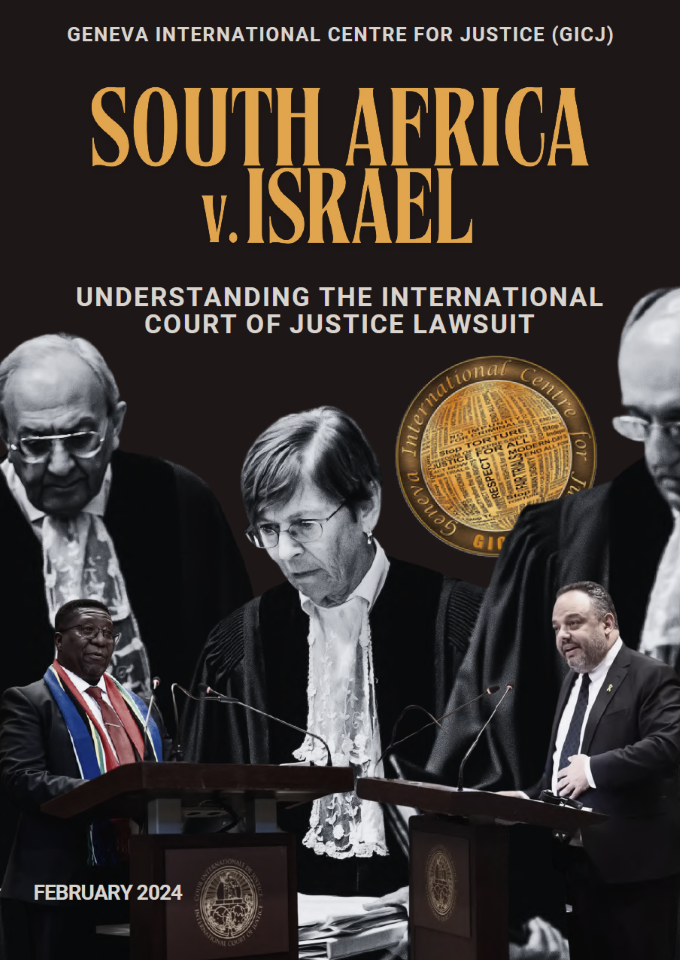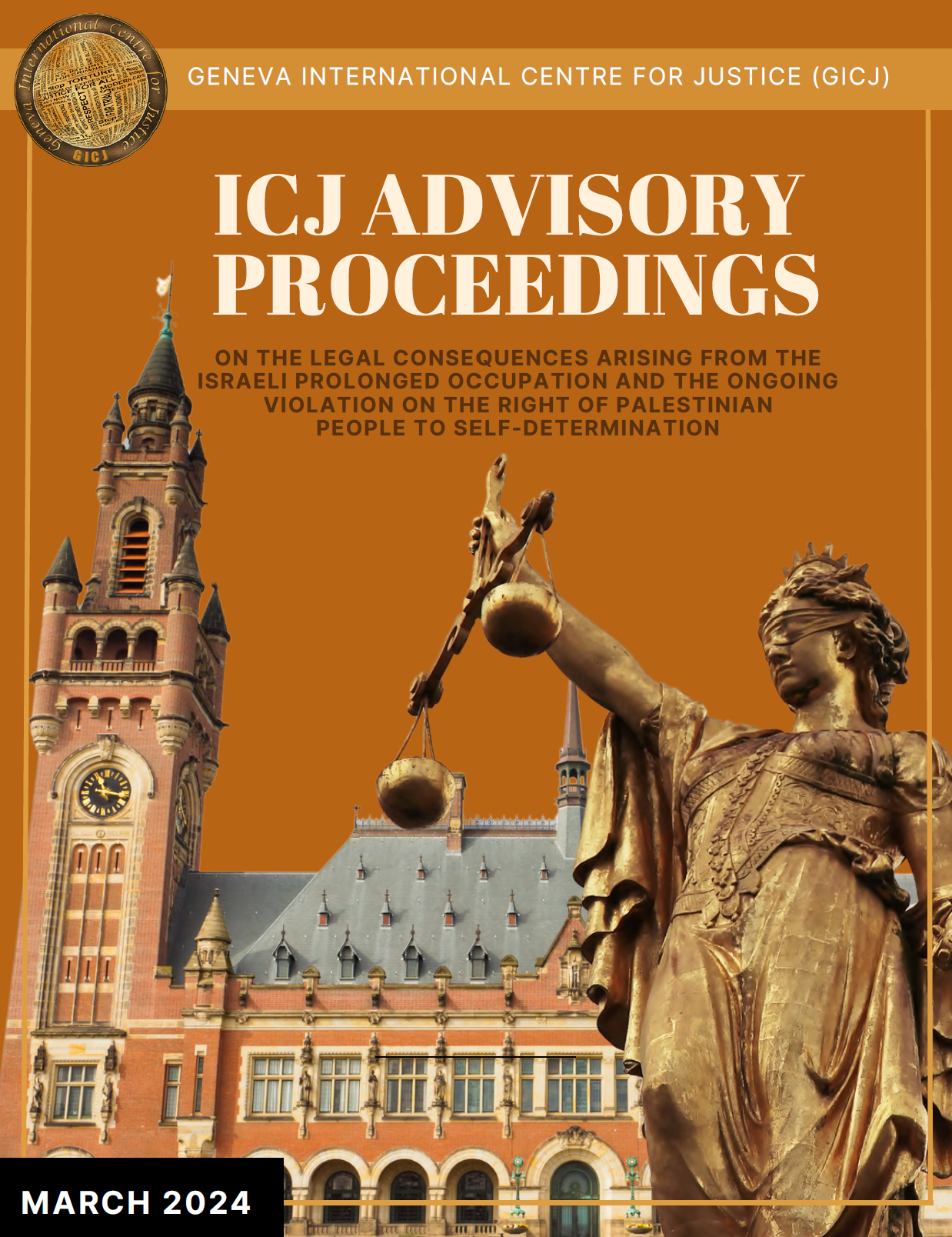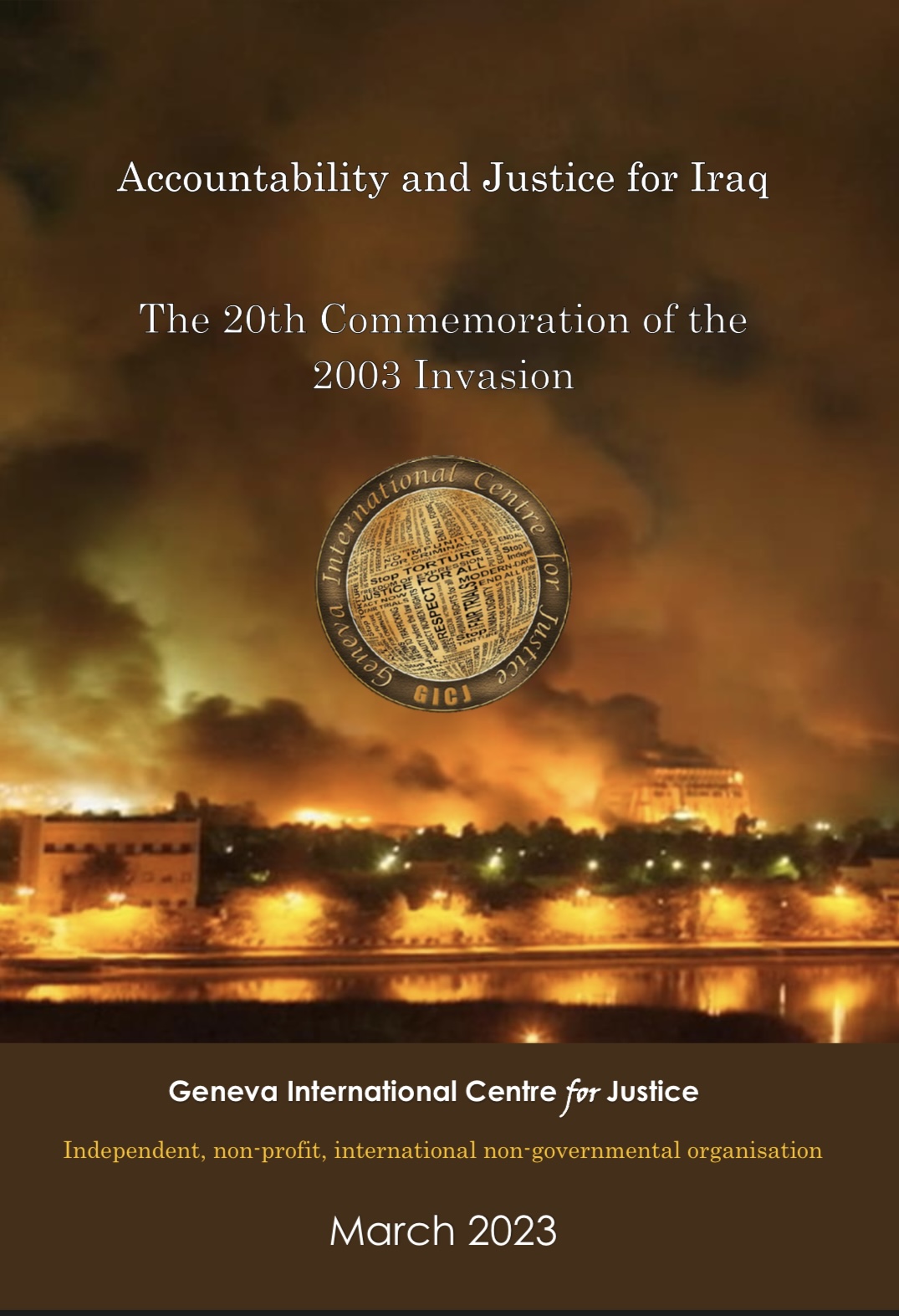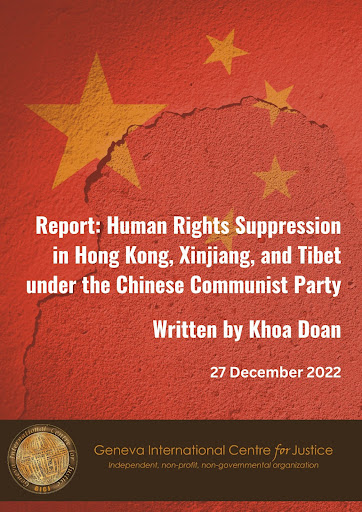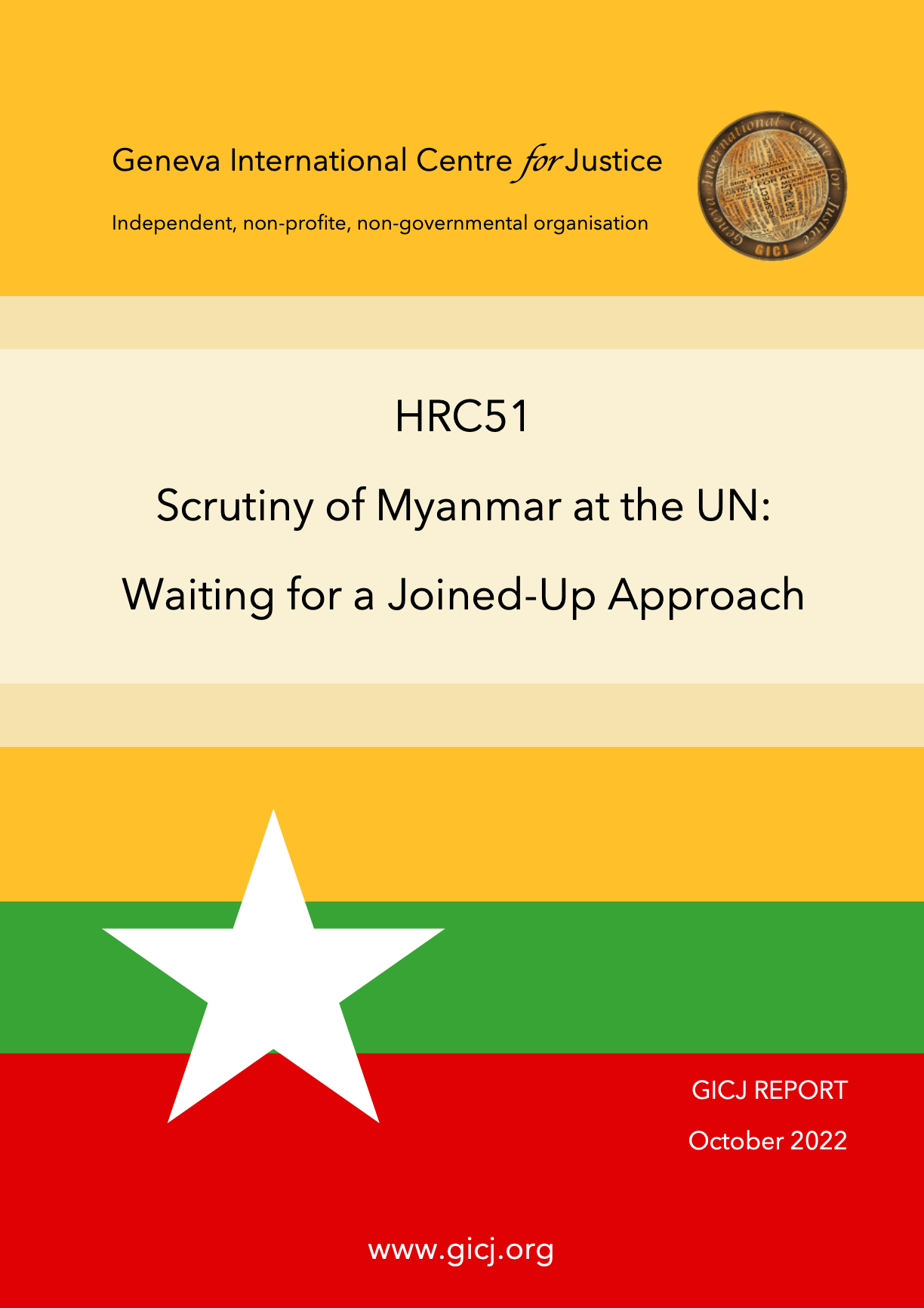20.03.2019
20.03.2019
Summary
Geneva International Centre for Justice (GICJ) has always been working on the issue of Palestinians in order to actively promote their human rights, constantly violated by the Occupying power, Israel. During this sensitive and unstable period, GICJ is bringing to the attention of the UN Human Rights Council (HRC) several issues that must necessarily be addressed to implement the basic international human rights of Palestinians.
Alarming events that occurred during the last months of the year 2018 and the beginning of 2019 are a clear demonstration that Israel has no intention of complying with its legal duties stated by international humanitarian law and human rights law. It has continued to openly ignore every call, condemnation and recommendation made by UN bodies. Israel continues to consider itself above every law and international body.
On the 18th of March, during the 40th Session of the UN HRC, GICJ contributed to the discussion by delivering several joint oral statements concerning the human rights situation in the Occupied Palestinian Territories.
GICJ also submitted four joint written statements concerning different aspects of the issue urging the attention of the Council and the international community.
The following issues were addressed:
- Palestinians under Apartheid regime
- Gaza blockade
- Violence against demonstrators
- Arbitrary arrests in East Jerusalem
- Palestinians’ houses demolition in East Jerusalem
- The suffering of Palestinian children
Key words: Human Rights, Occupied Palestinian Territories, UN Human Rights Council 40th Regular Session
Country/Region: Palestine
Read the full text
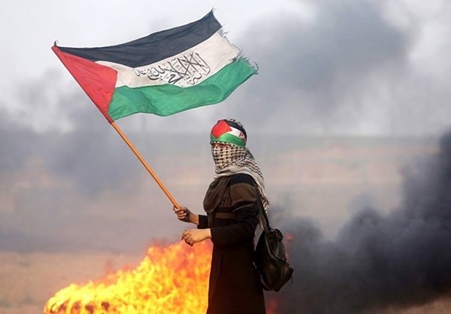
Credit: Farsnews
Geneva International Centre for Justice (GICJ) has always been working on the issue of Palestinians in order to actively promote their human rights, constantly violated by the Occupying power, Israel. During this sensitive and unstable period, GICJ is bringing to the attention of the UN Human Rights Council (HRC) several issues that must necessarily be addressed to implement the basic international human rights of Palestinians.
Alarming events that occurred during the last months of the year 2018 and the beginning of 2019 are a clear demonstration that Israel has no intention of complying with its legal duties stated by international humanitarian law and human rights law. It has continued to openly ignore every call, condemnation and recommendation made by UN bodies. Israel continues to consider itself above every law and international body.
On the 18th of March, during the 40th Session of the UN HRC, GICJ contributed to the discussion by delivering several joint oral statements concerning the human rights situation in the Occupied Palestinian Territories.
GICJ also submitted four joint written statements concerning different aspects of the issue urging the attention of the Council and the international community.
Palestinians under Apartheid regime
One aspect that concerns GICJ deeply, and that was therefore highlighted ahead of the Council, is the segregation system faced by Palestinians, imposed by Israel through many policies and practices of racial oppression and discrimination. In our first statement, GICJ argued that Israel is accountable for committing the crime of Apartheid against Palestinians, reporting and exposing all the different faces of Israel’s segregation regime, which is built on a number of restrictions against them. First of all, the endorsement by the Israeli cabinet in 2002 of the construction of a the “Apartheid Wall”, named by Israel the “Security Fence” or “Anti-terrorist Fence”. Built on the declared purpose of preventing illegal entry into Israel, being to assure national security against Palestinian attacks, the wall was basically the first mean to achieve more insidious goals, such as segregation and land annexation. Indeed, it lies within occupied territories for most of its course.
The wall not only violates several basic human rights of Palestinians but was also declared unlawful by the International Court of Justice in 2004 in its advisory opinion, thus requiring Israel to cease the works of construction and to demolish those parts of the wall situated within Occupied Palestinian Territory. Nevertheless, Israel has continued to build it and has failed to meet its obligation to provide reparation for all the damages caused by the construction.
The construction of the wall was accompanied by an associated system of legal and administrative barriers, such as gates and checkpoints. The whole system precludes the Palestinians’ right of movement, preventing them from accessing fundamental facilities like schools and hospitals, and is therefore having a devastating impact on Palestinians’ daily life activities. Checkpoints are often the locations of physical and psychological abuse perpetrated by Israel police against civilians through unnecessary body and document searches or arbitrary closure of gates causing endless queues and delays.

Credit: Ahmad al-Bazz / Activestills.org
January 2019 also witnessed the opening of a new road (Route 4370) nicknamed by human rights activists “The Apartheid Road”, since it consists of a road with two different sides, one for Palestinians and the other for Israelis, separated in the middle by an eight-meter wall. It was built in the centre of the occupied West Bank, connecting the illegal settlement of Geva Binyamin to Route 1 (Jerusalem-Tel Aviv highway). The side meant to serve Palestinian traffic prevents them from accessing the Holy City, deviating with an underpass to the South of the West Bank. It has therefore made it more difficult for Palestinians to access the Holy City, and it is destroying the territorial contiguity and territorial integrity of the West Bank.

Credit: AFP 2018 / THOMAS COEX
January 2019 also witnessed Israel’s public announcement not to renew the mandate of the Temporary International Presence in Hebron (TIPH). TIPH is a civilian observer mission, present in the city since 1997, aimed at assisting the two governments in their efforts to improve the critical situation in Hebron, promoting its stability as well as a feeling of security to the Palestinians.
Israel justified its decision not to renew the mandate of the observers by claiming that TIPH was acting against Israel and creating an atmosphere of conflict. In our statement, GICJ argued that, since Hebron has always been a particularly unstable area, this decision will increase the violence against Palestinian civilians and will undermine an effective mechanism of conflict prevention. GICJ is seriously concerned about the security of civilians in Hebron since, after the decision, there has been an escalation of violence against civilians. The removal of TIPH might also further increase the limitations imposed on the daily life of Palestinian civilians by settlers and so increase their segregation.
GICJ maintains that the creation of a segregated road system is the logical continuation of the project of the wall which, along with colonial settlements and closed zones, is a clear manifestation of the Apartheid system imposed on Palestinians.
Gaza blockade
The human rights situation in the whole of Occupied Palestine continues to deteriorate. GICJ is particularly concerned about the alarming situation of Gaza and therefore highlighted the need for an emergency response in a second written statement.
The Israeli blockade of Gaza started in 2007 and the longstanding restrictions on the movement of people and goods to and from Gaza have undermined the living conditions of 1.9 million Palestinians in Gaza, one of the most densely populated areas in the world. This brutal siege has resulted in suffering and struggling due to the psychological and physical damage caused by Israeli raids and attacks, shortages of food and power outages threatening the functioning of essential services.
The blockade is rendering it impossible for the Palestinians in the enclave to develop their economy and, as the UN has pointed out, the place will arguably become uninhabitable by 2020. The poverty rate is extremely high, and the majority of the people rely just on humanitarian aid. The unemployment rate has now reached more than 50% and is even higher among young people, who are not allowed to study or work abroad. The catastrophic economic situation in the area is the result of a planned policy carried out and intended by Israel, despite Israel’s argument that the blockade is justified by security reason.
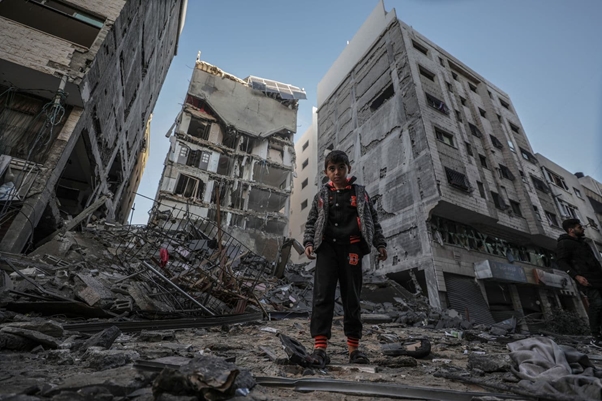
Credit: Mohammed Saber/EPA-EFE/Shutterstock
Especially, the blockade is having devastating effects upon Gaza’s health system and is therefore causing a serious medical crisis. The restrictions imposed by Israel, along with US funding cuts to United Nations Relief and Works Agency for Palestine Refugees in the Near East (UNRWA) and USAID, have caused long-lasting shortages of essential medicines and hospital equipment, as well as shortages of fuel to run hospital generators and the cancellation of all elective surgery. Due to the lack of resources many hospitals may need to close. This situation results in a clear violation of the Fourth Geneva Convention that guarantees access to medical facilities for conflict-affected populations.
Violence against demonstrators
Palestinians in Gaza have started protesting against the siege, as well as for the implementation of their legitimate right to return to their homes and land, based on international law. The protests are part of the Great March of Return, which started on 30 March 2018 for the Land Day commemoration. Although it was originally planned to last until 15 May 2018, the 70th anniversary of the Nakba, it has continued to occur every Friday for nearly eleven months. Since the protests have started, more than 250 Palestinians have been killed in the Gaza Strip, including vulnerable people, namely children, women, persons with disabilities, as well as journalists and paramedics. Thousands of people have been injured, mostly hit by live fire from Israeli forces.
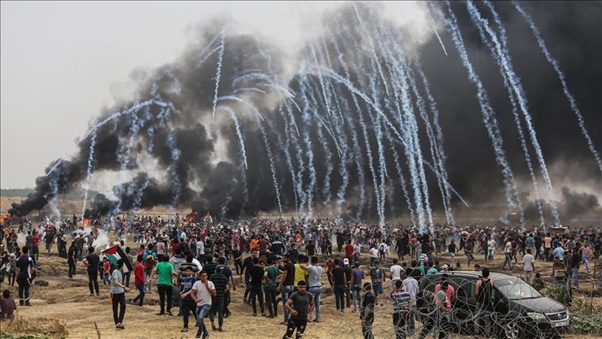
Credit: Ali Jadallah - Anadolu Agency
On May 18 2018, the Human Rights Council held a Special Session about the deteriorating human rights situation in the Occupied Palestinian Territory, that was made necessary due to the rapid escalation in violent attacks against Palestinian protesters during the Great March of Return. The Human Rights Council adopted Resolution S-28/1, establishing a Commission of Inquiry in order to investigate the alleged violations and again calling upon Israel to immediately cease all attacks. Israel, again, has completely ignored it.
The Israel Defence Force employed unjustified violence and excessive force against Palestinian demonstrators. GICJ condemns these acts as against the Geneva Conventions of 1949. The wilful killing of Palestinians in Gaza, as an occupied people, constitutes a war crime for which the Israel Defence Force must be accountable.
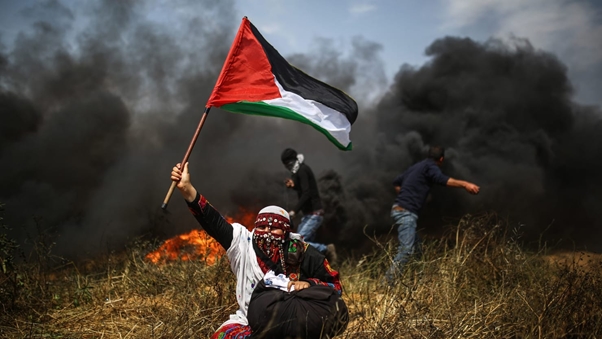
Credit: Baaz
GICJ strongly believes that the violations occurring in Gaza must come to an end and that it is responsibility of the international community to take immediate actions in order to address the situation.
Arbitrary arrests in East Jerusalem
In another statement, GICJ urgently called the attention of the Council to the ongoing situation of East Jerusalem, where the Palestinians are constantly under the threat of being evicted from their own city. Indeed, Israel, as the Occupation power, continues to perpetrate arbitrary arrests, house demolitions, and attacks on civilians especially in the Al-Aqsa Mosque area. Last December witnessed several cases of such violations in Jerusalem requiring an urgent response.
Examples of the problem include the large-scale arrest campaigns perpetrated by Israeli forces against civilians, as well as the practise of re-arresting freed prisoners under the justification of broad charges such as ‘disrupting public order’. The arrests mainly aim to criminalize any Palestinian expression of identity or popular celebrations in the city of Jerusalem.
The arrests are carried out against international standards that are part of the customary international law, which prohibit issuing detention orders without informing the detainee of the reasons for his detention, thereby relying on a secret charge rather than a public charge. The practise also violates the detainee’s right to defence by not allowing the detainee and his lawyers to access the profile of the case claiming the confidentiality of such information. In addition, Israel allows a person to be held in administrative detention without evidence or trial due to secret intelligence information that he poses a security risk. Racial discrimination between Palestinians and Israelis in the investigation, prosecution and court procedures are a daily life reality.
The Israeli occupation authorities also practice an arbitrary and brutal policy against Palestinians in Jerusalem in relation to house construction. They seek to expel them by denying building permits and demolishing their homes and shops.

Palestinians’ houses demolition in East Jerusalem
In 2018, Israeli occupation authorities demolished 68 residential homes and 178 commercial facilities. Moreover, they threatened to demolish more than 125 houses and commercial facilities in Jerusalem. Furthermore, the number of demolished houses by orders of the Israeli municipality and courts reached about 57, ten of which were self-demolished by their owners. Subsequently, more than 144 people were evicted from their homes due to the demolitions.
Jerusalemites’ right to land as well as their right to dignity is constantly violated. GICJ believes that an intervention of all the concerned UN bodies in order to implement the UN General Assembly Resolution 181 concerning the status of Jerusalem in needed. They should also put more effort into pressuring the government of Israel to take responsibility for the protection of Jerusalem and its Palestinian population as residents of an occupied territory.
The suffering of Palestinian children
In a fourth statement, GICJ highlighted the suffering of the most vulnerable inhabitants of the Occupied Palestinian Territories, especially children.
More and more incidents have taken place near Palestinian schools, disrupting access to activities at the school. Incidents include harassment and delays of children travelling to and from school, clashes in the vicinity of schools, and violent raids and search operations inside schools. Apart from the physical injury and related absence from school, these incidents impact children socially and psychologically by creating anxiety, trauma and harm to their sense of safety, which ultimately makes learning more difficult.
Children’s rights must be put ahead of any other consideration and therefore the UN bodies must take immediate steps to alleviate their suffering. GICJ urges all actors to ensure that children are never the target of violence, and they must not be put at risk of violence or encouraged to participate in violence.
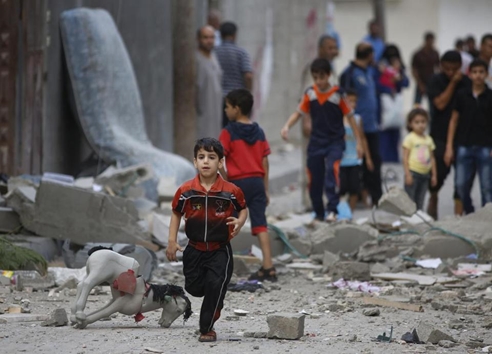
Credit: AP Photo/Lefteris Pitarakis

Credit: Thomas Coex/AFP
Palestine, Justice, Human rights, International Humanitarian Law, Geneva, geneva4justice, GICJ, Geneva International Centre For Justice
GICJ Side-event on Palestine during the 38th Regular Session of the Human Rights Council
![]()
"Human Rights in the Occupied Palestinian Territory: Systemic Violations with Impunity"
Urgent Appeals on Palestine by GICJ:
|
|
Khan Al Ahmar: A Village on the Verge of Destruction by Israel |
|
|







